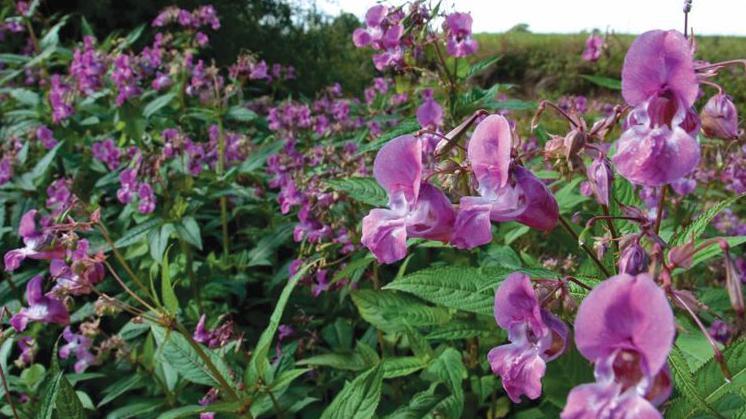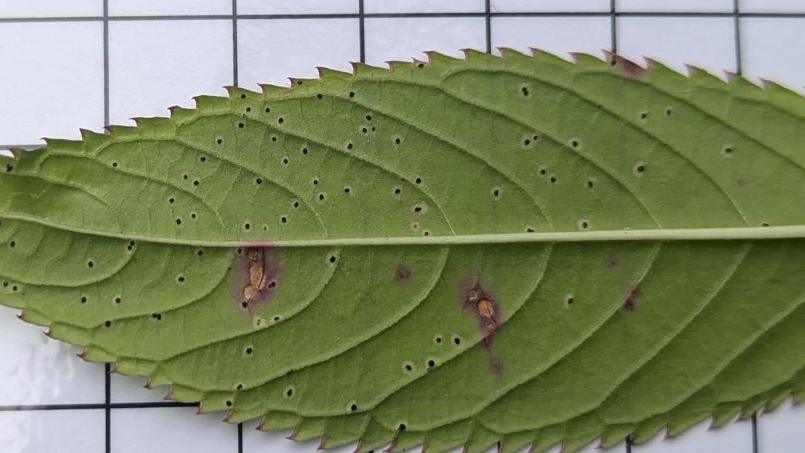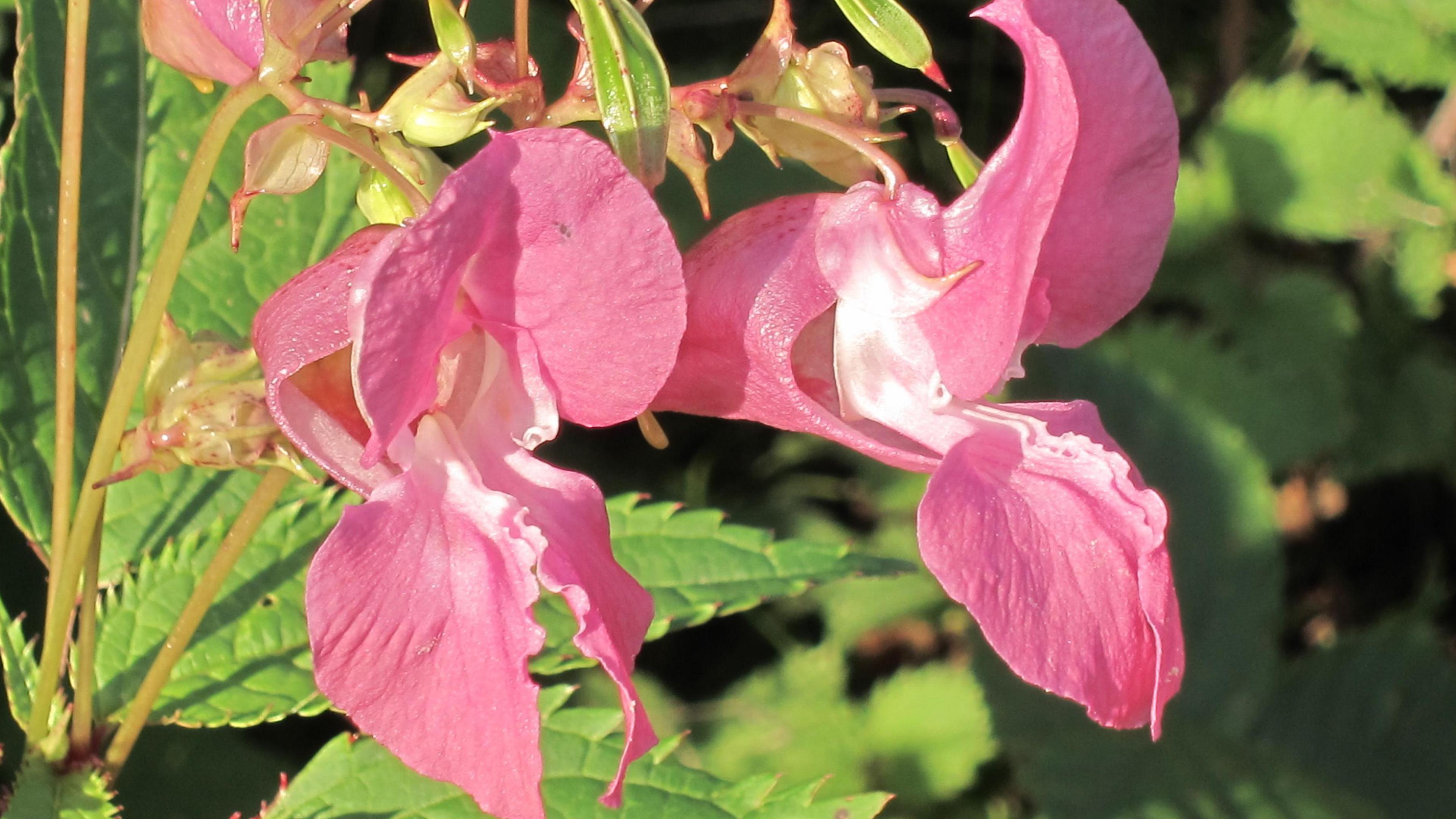Fungus used to tackle invasive plant in trials

Himalayan balsam is "instantly recognisable" from its tall stems and pink flowers, the Yorkshire Wildlife Trust says
- Published
A trial to tackle the invasive Himalayan balsam plant using a fungal infection has shown "early success".
Yorkshire Wildlife Trust (YWT) said the plant, which has a native range in India and Pakistan, is one of the UK's "most pervasive and iconic invasive species".
The trial, at locations in West and North Yorkshire, is using a pathological rust fungus also found in the Himalayas to tackle the plant's growth.
YWT said plants previously had to be manually removed to control the spread, which is a very labour-intensive process.
The organisation, which leads the Yorkshire Invasive Species Forum, said the weed was "instantly recognisable" from its tall stems and pink flowers, and it is often found down riverbanks, road and rail routes.
The plant causes riverbank erosion and grows up to 9.8 ft (3 m) high, smothering other native plant species nearby, the YWT said.

Rust fungus is the "natural enemy" of Himalayan balsam, the trust says
Rust fungus was released in summer 2024 in Hertfordshire by Herts and Middlesex Wildlife Trust and in West Yorkshire.
Additional Defra funding has also seen a "successful" release at Wheldrake Ings nature reserve near York, the trust said.
The National Trust, which runs Hardcastle Crags, Hebden Bridge, said it was "delighted" that rust fungus was "thriving" there.
Rosie Holdsworth, National Trust countryside manager, said early results had been "very encouraging".
"We're excited to monitor how the fungus continues to suppress balsam growth in the coming seasons," she said.
Elliot Baxendale, YWT project officer, said the charity had spent around 700 hours across two months in 2025 manually removing it.
"We spend a lot of time managing Himalayan balsam infestations both on and off our reserves," he said.
"It's a difficult task given its sheer quantity and how hard it is to reach."
The rust fungus survived the Yorkshire winter, YWT said, and in spring it "naturally reinfected" this year's Himalayan balsam seedlings.
Mr Baxendale said it was "a truly exciting and game-changing opportunity for managing this highly invasive and destructive species".
Get in touch
Tell us which stories we should cover in Yorkshire
Listen to highlights from West Yorkshire on BBC Sounds, catch up with the latest episode of Look North
Related topics
Related stories
- Published21 May 2024
